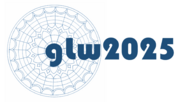Main Page
Appearance

Greece / Colombia / Germany
Jun 12 / Oct 21-23 / Nov 3-7
The Encyclopaedia of Systems Science and Cybernetics Online (ESSCO) and Interdisciplinary-Glossaries as tools for knowledge integration
GlossaLAB provides continuity to three encyclopaedic projects devoted to the general study of systems and information:

- International Encyclopedia of Systems and Cybernetics (IESC), directed by Charles François[2],
- Principia Cybernetica, coordinated by F. Heylighen, C. Joslyn and V. Turchin[3], and
- glossariumBITri - Interdisciplinary Glossary of concepts, metaphors, theories and problems concerning information, coordinated by J.M. Díaz-Nafría, F. Salto-Alemany and M. Pérez Montoro.
[4] The highest level of knowledge integration corresponds to the Encyclopaedia of Systems Science and Cybernetics Online (ESSCO), which organically hosts the contents of the three mentioned resources. At the same time, it will serve as basis for the development of further interdisciplinary-glossaries [5] as theoretical methodological tool for the integration of knowledge and the evaluation of results in scientific integration (as targeted by PRIMER initiative). [6]
References
- ↑ Díaz-Nafría,J.M.; Guarda, T.; Hofkirchner, W; Zimmermann, R.; Chroust, G.; Belli, S. (2019). glossaLAB: Co-Creating Interdisciplinary Knowledge. Communications in Computer and Information Science, 1051, pp. 423-437, https://doi.org/10.1007/978-3-030-32475-9_31. archivable version
- ↑ François, C. (dir.) (2004). International Encyclopedia of Systems and Cybernetics. 2nd Edition. Munich: K.G. Saur.
- ↑ Heylighen, F., Joslyn, C., Turchin, V. (eds.): Principia Cybernetica Web. Principia Cybernetica Project, Brussels (2016). web [Accessed 20 Feb 2021]
- ↑ Díaz-Nafría, J.M., Salto, F., Pérez-Montoro, M. (coord.) (2016). glossariumBITri: interdisciplinary elucidation of concepts, metaphors, theories and problems concerning information. Libertad, Ecuador/León, Spain: UPSE-BITrum. E-book [Accessed 20 Feb 2021]. Interactive version available since 2010: glossariumBITri web [Accessed 20 Feb 2021].
- ↑ Díaz-Nafría, J.M.; Burgin, M.; Rodríguez-Bravo, B. (2019). Knowledge structures and Conceptual Networks for Evaluation of Knowledge Integration. In G. Dodig-Crnkovic, M. Burgin (eds.), Philosophy and Methodology of Information, pp.457-490, Singapore: World Scientific. archivable version
- ↑ Díaz-Nafría, J.M.; Díez-Gutiérrez, E.; Hofkirchner, W; Zimmermann, R.; Belli, S.; Martínez-Mekler, G.; Müller, M.; Tobar, L.; Martín-Mayoral, F.; Stavrakis, M.; Guarda, T.; Ugalde, E. (2019). PRIMER Initiative: PRomoting Interdisciplinary Methodologies in Education and Research. CEUR-WS, 2486, pp 168-182. open resource

